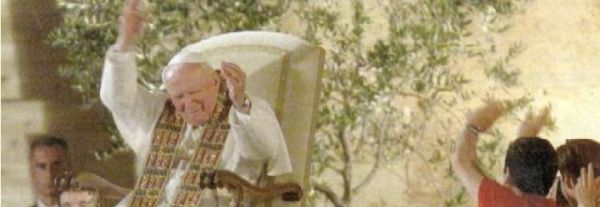2. Jesus says: "The Kingdom of God is like a man who sows a seed in the earth: sleep or wake, night or day, the seed germinates and grows; how, he himself does not know. For the earth produces spontaneously, first the stalk, then the ear, then the full grain in the ear. When the fruit is ready, immediately you put your hand to the sickle, because the harvest has come" (Mk 4:26-29). So the Kingdom of God grows here on earth, in human history, by virtue of an initial sowing, that is, of a foundation, which comes from God, and of a mysterious working of God himself, which continues to cultivate the Church down the centuries. In God's work for the Kingdom, the sickle of sacrifice is also present: the development of the Kingdom is not achieved without suffering. This is the meaning of the parable in Mark's Gospel.
3. We also find the same concept in other parables, especially those gathered in Matthew's text (Mt 13:3-50).
"The kingdom of heaven," we read in this Gospel, "can be compared to a mustard seed, which a man takes and sows in his field. It is the smallest of all the seeds, but when it has grown, it is larger than all the other seeds and becomes a tree, so that the birds of heaven nestle among its branches" (Mt 13:31). This is the growth of the kingdom in the "extensive" sense.
Another parable, on the other hand, shows its growth in an "intensive" or qualitative sense, comparing it to the yeast, which a woman took and mixed with three measures of flour so that it all fermented" (Mt 13:32).
[Pope John Paul II, General Audience 25 September 1991]












